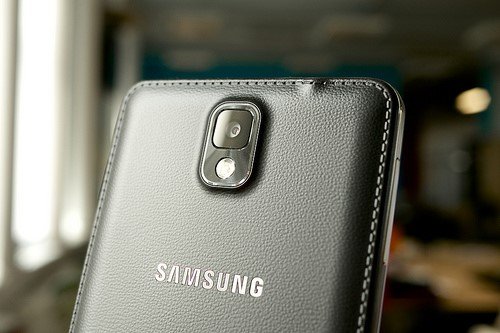How Mobile Optimization Is a Must For Businesses
If you still think mobile sites are a passing trend, you have fallen behind your consumers and your fellow businesses. With consumers and businessmen more and more obsessed with smartphones and the mobile sales conversions rising even higher, mobile optimization is a necessary move to successfully establish your online presence. Here are five ways that mobile optimization is a must for every business’ success:
1. Mobile is Important to Consumers
Image via Flickr by Janitors
According to a Pew Research survey, almost 60 percent of Americans owned a smartphone as of January 2014. And those same Americans use their phone for everything. It’s their camera, their calendar, and their entertainment when they are bored. They invest in everything from car chargers and cradles to smartphone speakers so they that their phone can forever act as the extension of their arm that it is. It is radio, GPS, and email, in addition to such menial tasks as phone calls and texts.
And this smartphone co-dependency transfers to the way they consume products and interact with businesses. Mobile sales rose over 50 percent in 2013, according to Google’s new Mobile Playbook, with almost a fifth of all sales now coming from smartphones and tablets. And if your business doesn’t have a functional mobile site, Google found that almost half of consumers won’t hesitate to turn to a competitor.
2. Mobile is Under-Appreciated
While those numbers should be enough to motivate every business into getting a clean mobile site, GetElastic’s infographic on mobile websites reported that just over a third of businesses had any sort of mobile site in 2013, meaning they are handing off a significant number of future customers every day to more tech-savvy companies.
And while having a mobile site is good, it isn’t the end of the road for mobile interaction. You need to have the right information clearly visible. That means address and hours for brick-and-mortar businesses and an easy-to-use shopping cart for e-commerce companies. Bottom line? Mobile isn’t an upcoming trend. It’s the standard, and if you don’t have it, you are behind.
3. The Mobile Tablet Market Should Be Tapped
Image via Flickr by Janitors
Even though tablets are still a growing market, GetElastic found that tablet users are the most likely to make a purchase, with 72 percent of tablet users making at least one purchase on their tablet a week. In fact, over half of tablet users said that they preferred shopping on their tablet to other electronic devices, making them over three times as likely to make a purchase than smartphone users.
If you are eager to turn mobile tablet views into sales, your site needs to be simple, clean and fast. GetElastic noted that almost all online shopping carts (97 percent) are abandoned due to a cluttered screen.
4. Mobile Optimization is Just the Beginning of Consumer Interaction
Finally, once someone has been to your mobile site, GetElastic found that they are almost guaranteed to engage your business in additional ways. Over 70 percent of users will continue to interact with your brand once they’ve seen your mobile site, whether that is by continuing their research or visiting your store. A quarter of visitors will visit your retail site, and 17 percent will make a purchase afterwards, too.
5. Mobile is Fast
Mobile is an on-the-go and on-a-whim kind of marketplace, so what happens when a mobile site is slow? We already know that a poor mobile experience could send up to 40 percent of consumers to competitors. But over half of the people who do make mobile purchases will do so within an hour of their mobile search. That gives you 60 minutes or less to have a consumer browse your merchandise, pick a product, put it in their shopping cart, and pay for it.
If the site is slow and cluttered, that 60 minutes blows by and users will be much more likely to abandon their shopping. And if consumers have experienced a slow mobile site—slow enough to deter them from purchasing something—43 percent said they weren’t likely to return.



